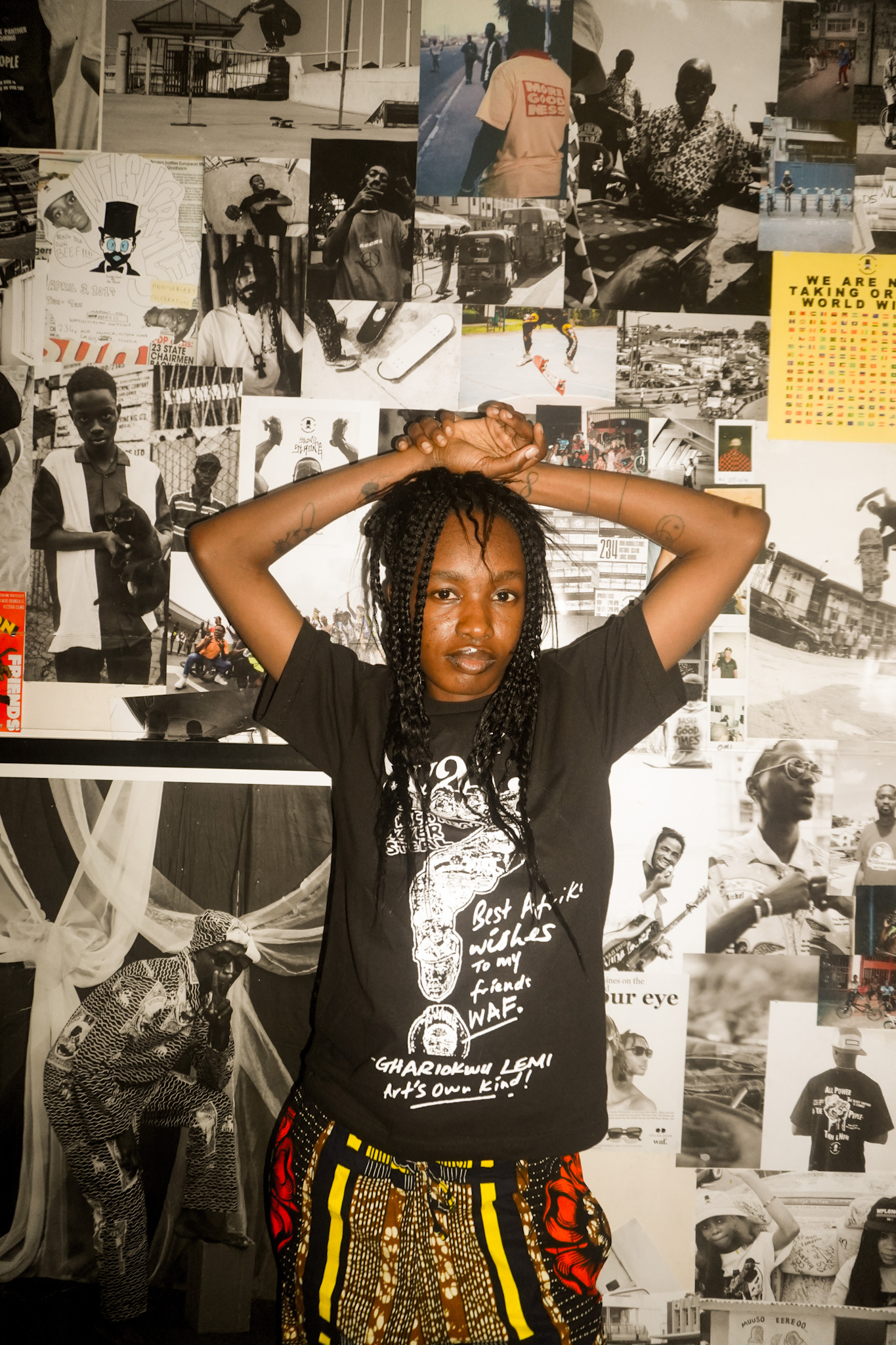In July of this year, I wrote about a forgotten sense of community and the prevailing loss of culture we experience when we succumb to loneliness and individualism. One of the references I used for the piece and what it means to cultivate a community was the American female skater-led drama, Betty. More and more women and femmes today are finding community in beloved and shared activities, such as skating, a traditionally male and heterosexual space. Being one of the key players and stakeholders in Nigerian skateboarding, the lack of structural and systemic support for femme and queer skaters is something Waf. noticed and was made aware of by female and queer skaters around them. In response to this Waf. writes,
When thinking about social inclusion, it is important to remember that we are starting from a point of inequity. Skateboarding programs for marginalized groups have numerous physical, social, and psychological challenges that significantly compromise their participation. To acknowledge this, waf. now includes a female-skaters category in all skate jams and intends to include more marginalized gender groups going forward. During their most recent Go-Skate Day celebration, Nigerian Female Skater, Abimsola Naiwo, emerged [as] the winner of the female-skaters section.
Waf. has started a variety of projects and endeavours to increase diversity within the Nigerian skateboarding community in response to inequity. One of these is their unwavering support for Blessing Ewona’s Dencity, a skate crew made up of queer girls from Nigeria. By hosting a yearly competition, where victors get cash and awards, waf. supports and inspires female and queer skaters through the waf. and Dencity annual Skate jam. Waf. wants to collaborate with Dencity on more skate jams that highlight the skills of queer and female skaters in Nigeria while putting a focus on the inclusiveness of persons of all genders.
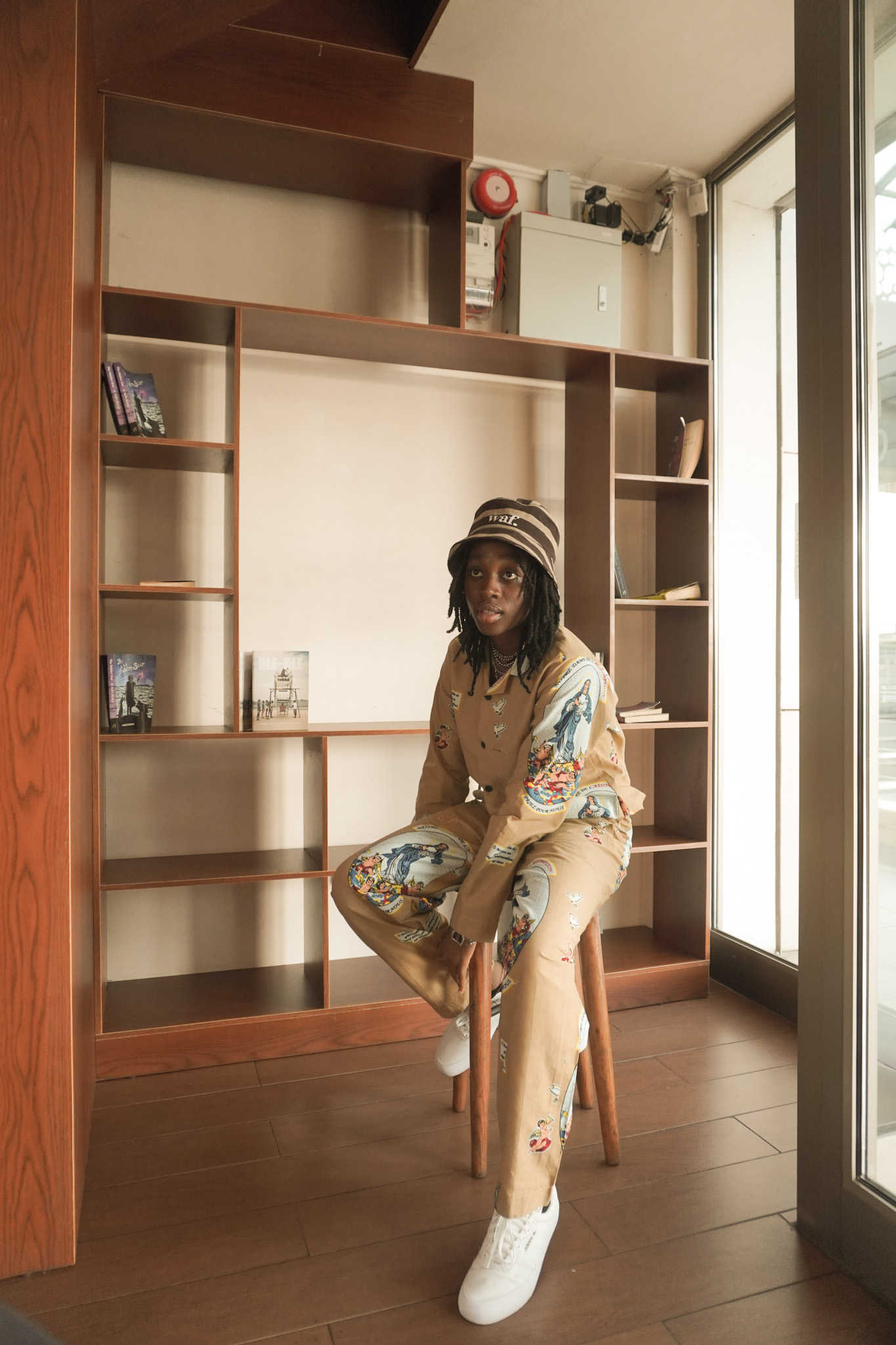
Waf. plans to keep working more intentionally on initiatives aimed at boosting inclusivity within the Nigerian skate community. The Waf. Babes Collection is also one of these initiatives. This line is intended to serve a variety of body types and genders while also celebrating the accomplishments of Black women and advancing gender equality and women’s rights.
Bubblegum Club recently had a virtual conversation with three skaters, Ogochukwu Onyemachi, Abimsola Naiwo and Blessing Ewona to get more insight on the landscape of female and queer skating in Nigeria, what work is needed and most importantly who they are as within this emerging community.
Bubblegum Club: Please introduce yourself and tell us how you started skating.
Ogochukwu Onyemachi: I’m Ogochukwu Onyemachi, an Enugu native, raised in Port Harcourt, now residing in Lagos and I work in skateboarding. I started rollerblading in 2010 and had my first encounter with a skateboard in 2014. My younger sister had done great in her exams and my mom bought her a skateboard. Like all toys and gifts we received, we shared them as siblings and it was no different with the skateboard. It was undeniably difficult to figure out, so they lost interest over time, and it basically became mine. I figured out how to push, but now I realize I was only mongo pushing at the time (lol).
[I] headed back to boarding school, where skateboards were not allowed, so I lost interest as well. Fast forward 7 years later, my roommate in university walks in with her friend’s skateboard and that excitement around skateboarding was very quickly rekindled. I borrowed that board whenever I was free after classes and went skating at the basketball court. I did that for a while until I was able to save up and buy a Walmart-quality board. After that, a series of events took me off skateboarding until April this year, when I started working at waf. and attended my first Dencity session.Abimsola Naiwo: My name is Naiwo Abimsola. I started skating in 2020 during the COVID-19 pandemic. My brother was already a skater so he just used to teach me some stuff at home.
Blessing Ewona: I’m Blessing Ewona. I’m a skateboarder and I started skating in 2020 shortly after I moved to Lagos.
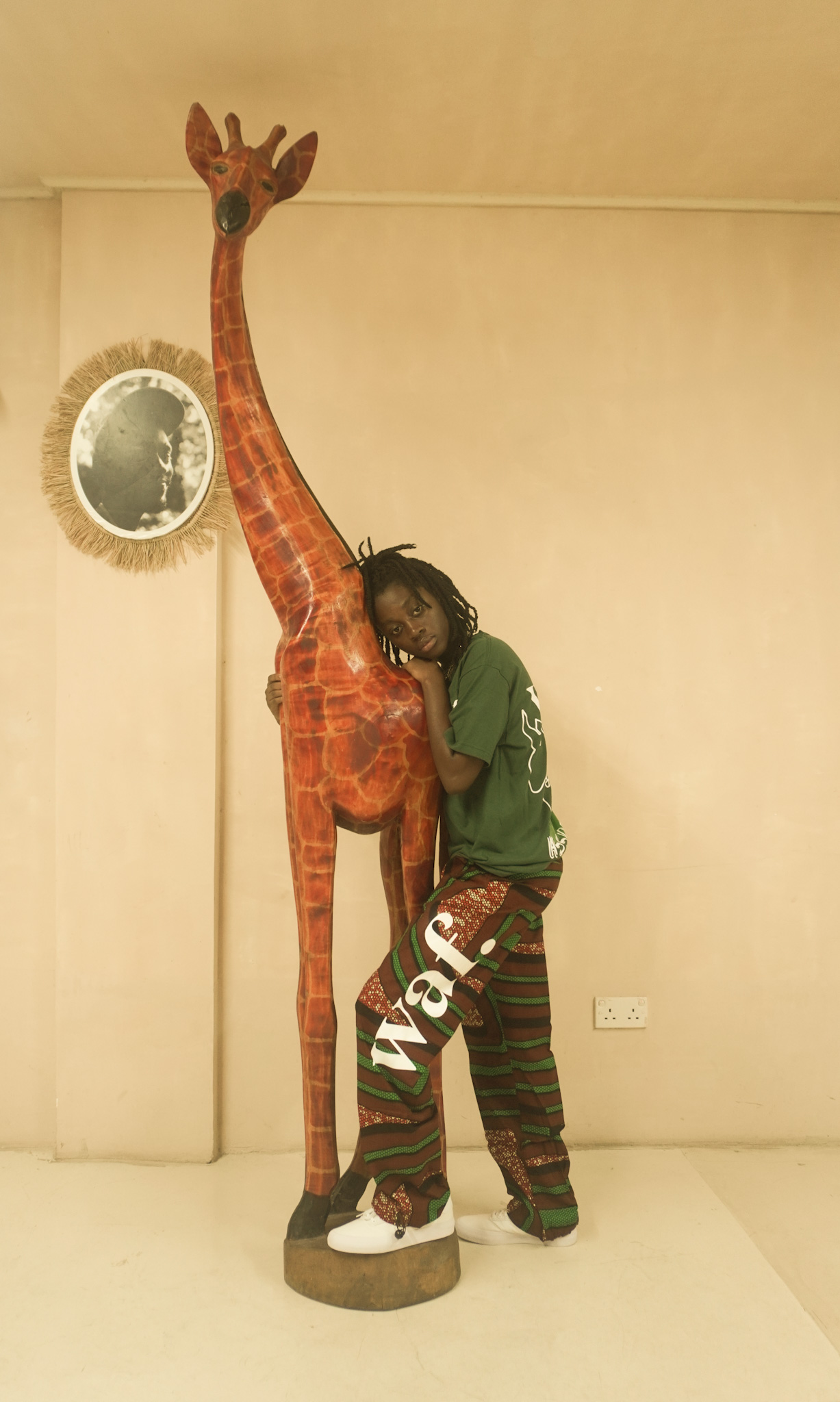
Bubblegum Club: Women’s skateboarding has definitely come a long way in recent years – how have you seen the landscape change during the time you’ve been skating? Whether you’ve been skating for a short or long amount of time.
Ogochukwu Onyemachi: I definitely agree. Back in 2014 I basically never saw anyone around me skateboarding and neither did my siblings. Rollerblading was more common as it is a notable means of transportation in Port Harcourt. It was also an entertainment form during carnivals and other events, and there were summer programs that included rollerblading classes. The number of people back home that skate at the amusement park in Port Harcourt, Pleasure Park today, wasn’t the case when I lived there.
With communities like waf., Dencity, and Plus 2.3.4 that now exist, people have that enabling environment to come out and do what they love. Also, with more women in skateboarding, especially Black women who we look up to and who give us that representation and encouragement, that definitely has had an impact on the growth of women in skateboarding.
Abimsola Naiwo: When I started skating Blessing was the only female skater in Lagos that I knew. Now more females are coming about to skate and it’s very nice to see. Shout out to Dencity.
Blessing Ewona: It’s been interesting, to be honest. When I started skating, there were very few females that were skating, when lockdown started, I lost contact with them and then it was just me. Watching it become a community in less than 2 years has been really amazing and inspiring.
Bubblegum Club: In your opinion, what are some of the challenges women skaters still face today?
Ogochukwu Onyemachi: Despite coming a long way, women in skateboarding still face a lot of obstacles within the sport; backhanded compliments, harassment, lower prize purses for women competitions, low female participation rates, hyper visibility and low visibility of male and female skateboarders respectively, fewer contests for women skateboarders resulting to fewer opportunities, etc. These problems are largely a result of the male-dominated culture of the sport and the lack of understanding from the men in skateboarding on the obstacles women in the industry face.
Abimsola Naiwo: In general skateboarding is seen as a menace to society and for women, it is seen as a sport for men and a rough sport. Some parents are also not in support of their daughters partaking in skateboarding because of this mentality.
Blessing Ewona: Women skaters face a lot of challenges by just skating, there are extremely male-dominated spaces where we skate, a lack of representation of female skateboarders in media, the gender assumption tied with the sport, harassment, it’s just a lot and being an African female skater, omo!
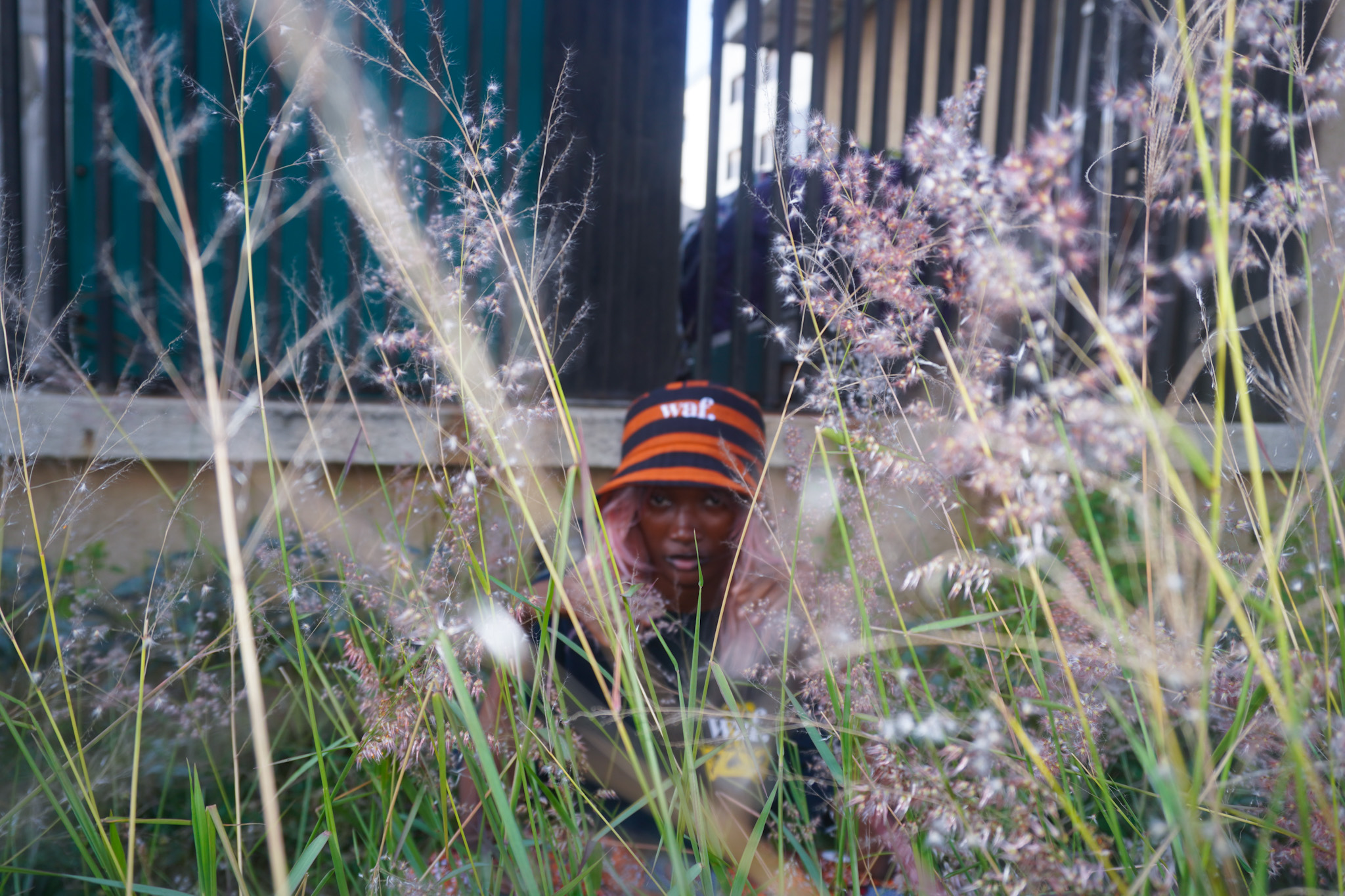
Bubblegum Club: Waf. recently embarked on the journey of increasing inclusivity within the Nigerian skateboarding scene with a number of projects and initiatives. One of which is their support for the Nigerian girls and queer skate crew, Dencity – what are your thoughts on the women’s skate scene in Nigeria and how it’s growing?
Ogochukwu Onyemachi: The women’s skate scene in Nigeria is continuously growing. I am forever grateful for Dencity. Women and other marginalized groups now have a safe space that enables the development of our passion. Waf. has also shown support to Dencity by hosting annual collaboration skate jams and including a women’s category in all its competitions. These have remarkably increased women’s participation in the sport here in Nigeria.
Abimsola Naiwo: Dencity is the first women’s skate scene in Nigeria. It’s a safe space that’s big on inclusion and building a community. I think it’s growing pretty well and fast. We organize skate sessions and jams in Lagos, Abuja, Port Harcourt etc.
Blessing Ewona: We really needed this community because not only has it increased the number of females/people in skateboarding it has also created an impact in the skateboarding scene in Nigeria, Dencity has been growing not only in Lagos but in other parts of the country it’s amazing to see and be part of it.
Bubblegum Club: How do you think the skateboarding industry can support and include women further going forward?
Ogochukwu Onyemachi: For starters, the industry should openly recognize these obstacles faced by women in skateboarding, and then take steps to tackle them. Notable brands and organizations within the industry can support women further by endorsing more female skateboarders, more media visibility for women in skateboarding, equal prize purses for men and women in the sport, more female competitions, more female skateboarding workshops, more financial or in-kind support, e.g. donation of skateboards, safety gear, skateboard parts towards marginalized groups in skateboarding. The list goes on, but these are good starters.
Abimsola Naiwo: The skateboarding industry can support women by providing boards, tools, financial support etc. so that the community can grow.
Blessing Ewona: Being more genuinely inclusive of female skateboarders in spaces, supporting the local female skateboarding community, there shouldn’t be a weird distinction between female and male skateboarders.
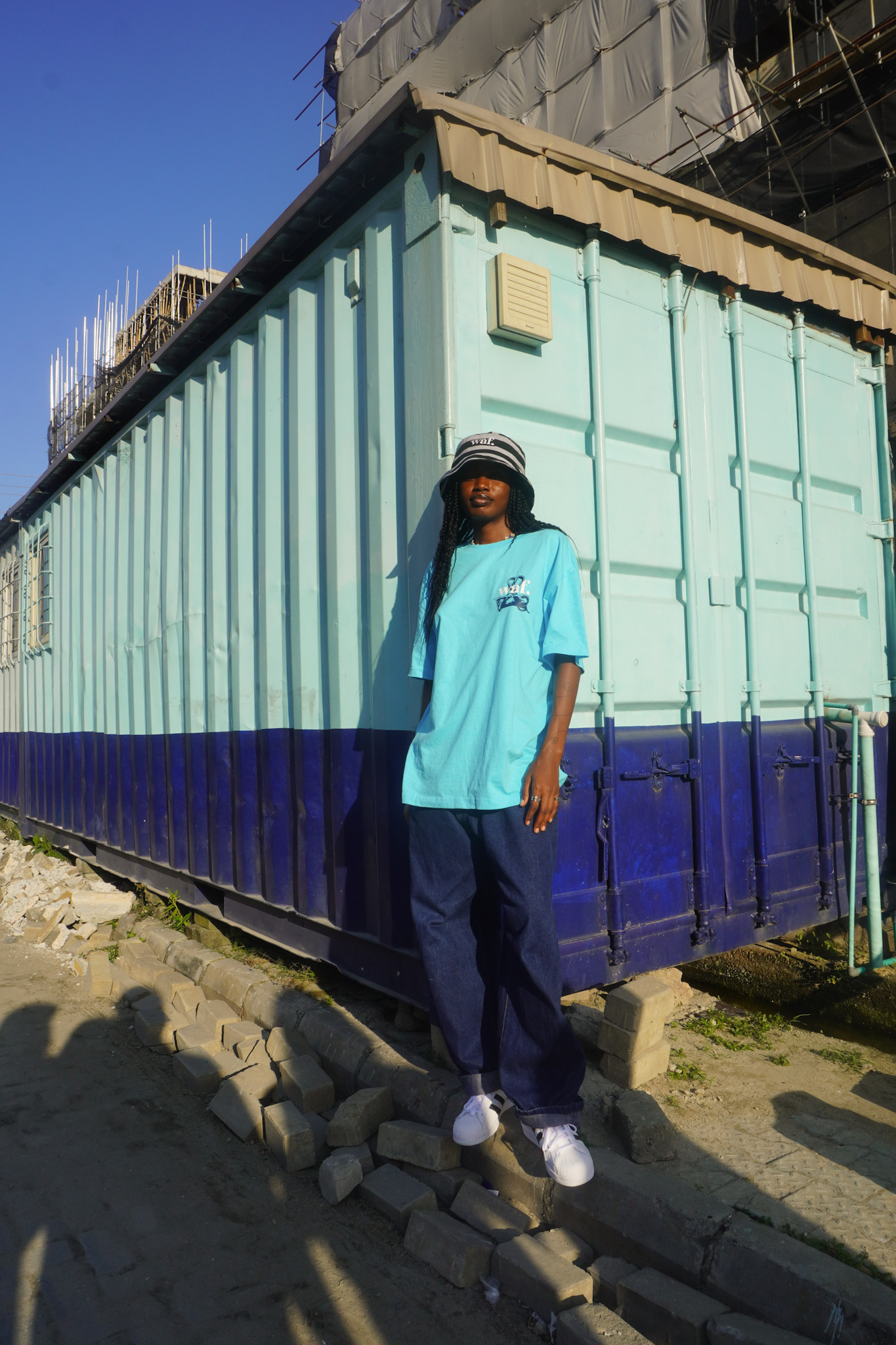
Bubblegum Club: Why do you think it’s important for brands like waf. to help provide spaces, mentoring and opportunities for women skaters?
Ogochukwu Onyemachi: It’s simple, more opportunities are created for women in the industry, and more women believe in themselves and are encouraged to take on the sport. It’s the power/purpose of support and representation.
Abimsola Naiwo: I think it’s important brands like waf. provides spaces, mentoring and opportunities for women skaters so that the community grows and gives us a platform where women can also skate and be good at it and it’s not just a sport for men.
Blessing Ewona: It’s very important because gender equality is very important in sport, I think it’s up to brands like waf. to help shape the scene which will help create opportunities for women skaters in Nigeria.
Bubblegum Club: Each of you have been helping women’s skateboarding evolve in your own way – who or what helped inspire you to skate?
Ogochukwu Onyemachi: What got me back on a board earlier this year, was the movie Skate Kitchen and the spin-off, Betty. It was so liberating seeing women like me break the barriers of the obstacles that come with the male dominated culture of skateboarding and just support each other to keep going. It was hella inspiring. It led me to Dencity and forever friendships within the community.
Abimsola Naiwo: My brother inspired me to skate during the covid pandemic. I was very sad during that period and skateboarding saved me.
Blessing Ewona: Starting Dencity and watching it grow is my inspiration to skate.
Bubblegum Club: What’s the best piece of advice you could offer to other women who are thinking of jumping on a board for the first time?
Ogochukwu Onyemachi: Filter the BS, keep your head up, and just have fun!
Abimsola Naiwo: My advice to other women: ‘Just do it’
Blessing Ewona: Just go for it, also don’t be scared to reach out if you need anything.
